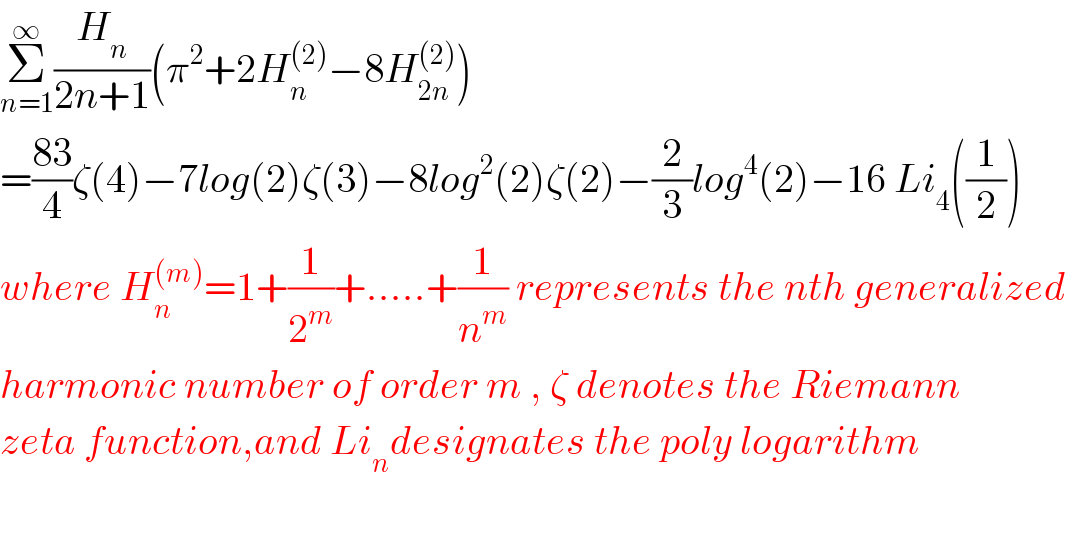Question Number 88004 by M±th+et£s last updated on 07/Apr/20

$$\underset{{n}=\mathrm{1}} {\overset{\infty} {\sum}}\frac{{H}_{{n}} }{\mathrm{2}{n}+\mathrm{1}}\left(\pi^{\mathrm{2}} +\mathrm{2}{H}_{{n}} ^{\left(\mathrm{2}\right)} −\mathrm{8}{H}_{\mathrm{2}{n}} ^{\left(\mathrm{2}\right)} \right) \\ $$$$=\frac{\mathrm{83}}{\mathrm{4}}\zeta\left(\mathrm{4}\right)−\mathrm{7}{log}\left(\mathrm{2}\right)\zeta\left(\mathrm{3}\right)−\mathrm{8}{log}^{\mathrm{2}} \left(\mathrm{2}\right)\zeta\left(\mathrm{2}\right)−\frac{\mathrm{2}}{\mathrm{3}}{log}^{\mathrm{4}} \left(\mathrm{2}\right)−\mathrm{16}\:{Li}_{\mathrm{4}} \left(\frac{\mathrm{1}}{\mathrm{2}}\right) \\ $$$${where}\:{H}_{{n}} ^{\left({m}\right)} =\mathrm{1}+\frac{\mathrm{1}}{\mathrm{2}^{{m}} }+…..+\frac{\mathrm{1}}{{n}^{{m}} }\:{represents}\:{the}\:{nth}\:{generalized} \\ $$$${harmonic}\:{number}\:{of}\:{order}\:{m}\:,\:\zeta\:{denotes}\:{the}\:{Riemann} \\ $$$${zeta}\:{function},{and}\:{Li}_{{n}} {designates}\:{the}\:{poly}\:{logarithm} \\ $$
Answered by mind is power last updated on 08/Apr/20

$${i}\:{will}\:{Try} \\ $$
Commented by M±th+et£s last updated on 08/Apr/20

$${thank}\:{you}\:{sir}\: \\ $$
